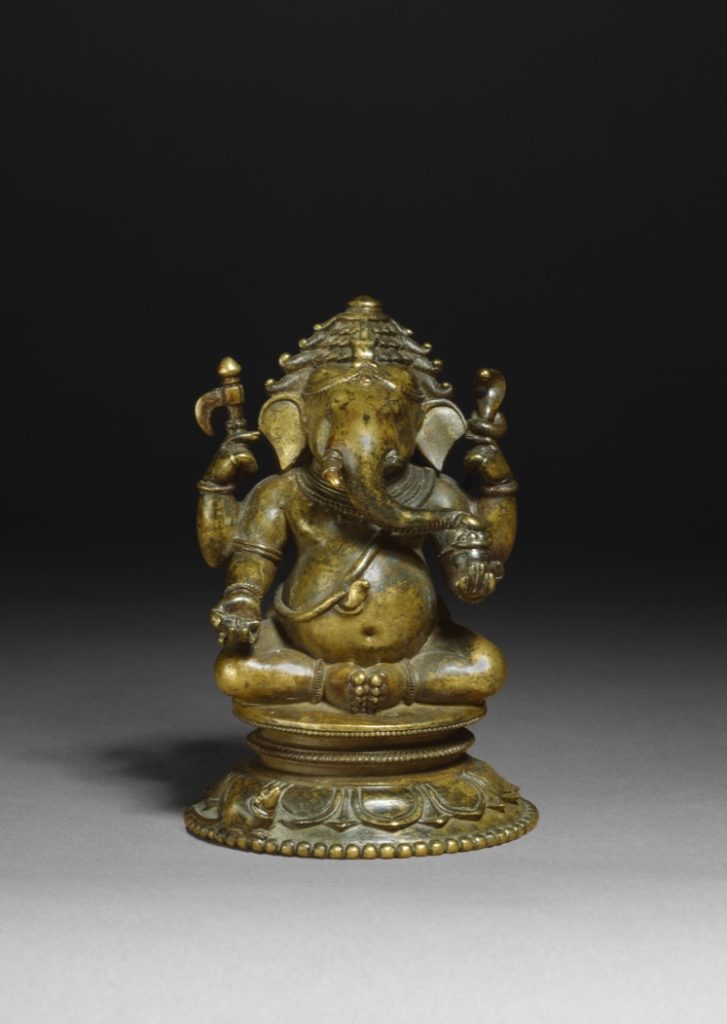Knowledge
Every society needs intellectuals. Every community needs some people who are engaged in research and who are asking questions that are essential to the tradition.
If you don’t ask these questions then you lose the bigger picture.
D
O
N


A
T
E
Every society needs intellectuals. Every community needs some people who are engaged in research and who are asking questions that are essential to the tradition.
If you don’t ask these questions then you lose the bigger picture.
2-years ago I decided to pursue an MPhil in the Study of Religion at the University of Oxford. As part of the programme, you select two religious traditions. One of the traditions that I selected was Hinduism. Most of my tutorials happened at the Oxford Centre and I also had the opportunity to take lessons in Sanskrit and to make full use of the extensive OCHS library which includes books that are not available in the University’s collection in the Bodleian Libraries.
I came to see that the University’s ability to offer the study of Hinduism as a subject is largely because of the OCHS, its academic staff, and its resources. I enjoyed the Master’s studies program and especially the part of it that focused on Gauḍīya Vaiṣṇava studies.
My current DPhil studies focus on the ontology of the self in the Caitanya Vaiṣṇava tradition. The Caitanya Vaiṣṇava tradition borrows textual passages from different sources that have their own implicit or explicit models of the self, combining these different elements into what you might call a theological bricolage that creates ambiguity around the nature of the self. Ambiguities that have persisted to this very day. The topic of my research has divided the tradition for about 100 years and has led to debate and polemics.
High-quality scholarly research on the tradition has the potential, I feel, to deepen our appreciation of the tradition and its heritage which importantly includes its intellectual history. In doing so, it gives us a deeper understanding of the complexities and nuances around certain topics, which in turn can give us an understanding and appreciation of the diversity within the Caitanya Vaiṣṇava tradition.
That broader understanding helps diffuse polemics and conflict in a way that the theological disputation within the traditions simply can’t.
One author who is very important to my research is Kedarnath Bhakti Vinod from the 19th century. A very important figure in the Caitanya Vaiṣṇava tradition who was prolific in his literary output. I had heard that there were original works of Bhakti Vinod in the Bodleian Libraries so I decided to go and discover them. Most of the books in the Bodleian are kept off-site. I requested these particular books and they were sent to the Weston Library reading room which is high security. It is for manuscripts and rare volumes and they have very particular rules for how to handle the materials.
On a personal level, it was a moving experience to see these original works from the 1880s, to see Bhakti Vinod’s photo, his signature, and in his own cursive handwriting a message presenting these books to Professor Monier Monier-Williams. It was like going back in time, like finding a time capsule.
Of course, the OCHS has its own treasures, which include original books by Bhakti Vinod including his personal copy of Chaitanya Bhagavat by Vrindavan Dasa Thakur. Preservation of the textual side of our tradition and the scholarly study of these texts are crucial to the future of Gauḍīya Vaiṣṇavism – and not only in Oxford.
In Vrindavan, for example, the Vrindavan Research Centre has thousands of manuscripts most of which have not been carefully examined or Studied, and the Bhakti Vedanta Research Center in Kolkata has a vast library of manuscripts and rare volumes on which a lot of work needs to be done. The Oxford Centre for Hindu Studies is ideally placed to lead this research and to intellectually secure the future of the Gauḍīya Vaiṣṇava tradition.
As you are reading this, a world-spanning movement is happening that, if provided solid financial support, in the future could very well be known as the Renaissance of Gauḍīya Vaiṣṇavism, the time when Kṛṣṇa Caitanya’s teachings were again studied by learned individuals at the highest educational institutions around the world.